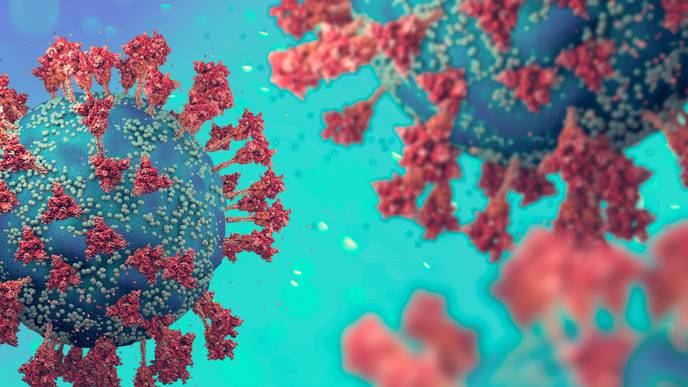ReachMD
Be part of the knowledge.™Bar-Ilan University Study Reveals Disparity in Quality of Life Among COVID-19 Survivors from Different Ethnic Groups

Newswise — A new study conducted by researchers at Bar-Ilan University in Israel has shed light on the long-term impact of COVID-19 on the quality of life among different ethnic groups in the country. The study, part of a larger cohort project, highlights a significant discrepancy between Arabs and Druze, and Jews, with the two former groups experiencing a more pronounced decline in quality of life one year after infection.
In this cohort study, researchers regularly followed up with individuals who had been infected with the SARS-CoV-2 virus to assess various aspects of their health. The findings, published in the International Journal of Public Health, demonstrate that the disparity in quality of life between ethnic groups remained even after accounting for socio-economic differences.
"We embarked on this study to investigate the long-term effects of COVID-19 on minority groups in Israel given existing health inequalities in the country," explains the study's lead author Prof. Michael Edelstein, of the Azrieli Faculty of Medicine of Bar-Ilan University. Well-being was assessed using the EQ-5D quality of life instrument measuring five dimensions: mobility, self-care, usual activities, pain/discomfort, and anxiety/depression. "Our results revealed that, while pre-COVID quality of life among Jews, Arabs, and Druze in our study was initially comparable, at the 12-month mark after infection the Arab and Druze participants reported a quality of life 11% lower than their Jewish counterparts," adds Edelstein.
The study's findings carry important implications for understanding the enduring impact of COVID-19 beyond the acute phase of the pandemic. The research suggests that certain populations may be more susceptible to long-term symptoms and a diminished quality of life, exacerbating pre-existing health disparities. These findings not only have implications for Israel, but also provide valuable insights for global efforts to address the long-term consequences of the COVID-19 pandemic.
"The significance of our research lies in the ability to shed light on the ongoing impact of COVID-19, even as the disease transitions from a public health emergency to a persistent health concern," emphasizes Prof. Edelstein. "By understanding how the virus affects different communities, we can work towards developing targeted interventions and support systems to mitigate the long-term effects on quality of life."
Dr. Jelte Elsinga, from Amsterdam University Medical Centre in Holland, led the analysis. The study was partially funded by a donation from the Harvey Goodstein Charitable Foundation.
As part of the larger cohort project, multiple papers have already been published and several more are in progress. Moving forward, the research team will continue to explore the role of vaccines in mitigating the long-term impact of COVID-19, as well as investigate the pandemic's economic consequences on employment and income among the study participants.
Facebook Comments